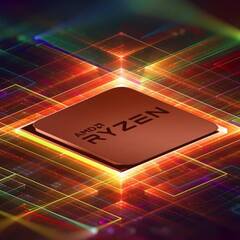Blueshift's memory module to be 1000 times faster than conventional memory
Go to solution
Solved by Meandme,
Background:
https://www.techopedia.com/definition/14630/von-neumann-bottleneck
Trends:
http://blog.appliedmaterials.com/tackling-big-questions-memory
With usage of faster memory you could integrate more cores into CPUs/GPUs.
Blueshift Memory has been created to boost special Big Data problems.
Some O(n) problems are running on O(logn) or even O(c).
Test videos from last year:




.thumb.jpg.41b364c91d47256e4c681dda232b92f9.jpg)




.thumb.jpg.3f847c8c0952383337ed3cbc282a08c2.jpg)







Create an account or sign in to comment
You need to be a member in order to leave a comment
Create an account
Sign up for a new account in our community. It's easy!
Register a new accountSign in
Already have an account? Sign in here.
Sign In Now